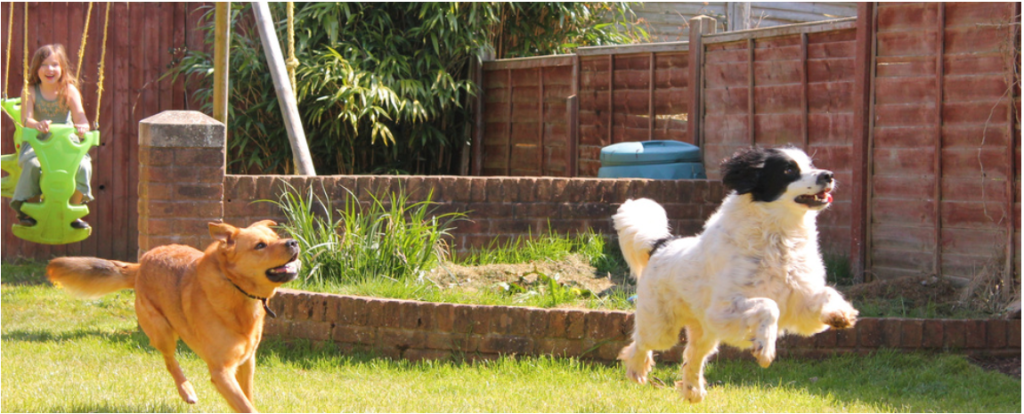
As a pet owner, it’s hard to imagine your animal as “that pet” — the one who attacks. Yet even well-trained and well-mannered animals can have a bad day or find themselves in a situation where they feel threatened. Then it happens: Your dog knocks someone over in a burst of excitement or perceives danger and goes into full defense mode.
When we talk about pets causing injury, we mostly hear about dog bites. The average cost per claim has more than doubled since 2003, according to the Insurance Information Institute (III).
Statutory strict liability and fault
In many states, you can be held strictly liable (regardless of fault) for damage and injuries caused by your pet. That means even if your pet hasn’t displayed aggressive tendencies in the past and you did everything you could to control the situation, you’ll likely be held liable for what happened anyway.
In other states, provocation of the pet (like teasing, abuse or harassment) is sometimes considered on a case-by-case basis. But if you’re making the case, that means you’re already involved in a lawsuit — and spending money on a defense. You’ll need financial help from your liability insurance.
Insuring liability means that you’re insuring against the possibility that it could happen. With dog bites accounting for nearly 20,000 claims each year, there’s no doubt that it could happen.
Liability coverage — homeowners and renters
If you have a homeowners or renters policy, it should cover your legal defense costs and damages for claims against you for bodily injury or property damage, which may include damage and injury caused by your pet. Homeowners liability limits should be high enough to cover the average cost of a dog bite claim, about $50,425 nationwide, according to the III. But severe injuries can result in much greater damage.
- Dog attacks could result in lawsuits, penalties, criminal convictions and jail time for the dog owner or caregiver.
- A dog bite claim can trigger a non-renewal with your insurance company or long-term rate increases.
If you’re a tenant and own a pet, you should have renters insurance for the liability protection it provides, even if you think you have little or no property to insure.
If you own assets in addition to your home, a personal umbrella policy can provide extended coverage over your homeowners and auto limits.
An umbrella policy will only extend coverage on the existing policies in place, so make sure you know what you’ve got and what’s excluded.
Exclusions on restricted breeds
When it comes to liability coverage and pets, you might run into something called a “restricted breed” list. This includes certain breeds of dogs that are considered more aggressive, statistically speaking.
There are canine endorsements that exclude liability coverage for damage or injury caused by specifically identified breeds. Other policies have write-ins that exclude canine bodily injury or property damage arising out of direct physical contact with a dog owned by or in the care, custody or control of an insured.
Be sure to ask your insurance professional about policy exclusions or restricted breeds and be aware of any gaps in your liability coverage. You don’t want to find out that there was a list you weren’t aware of.
Special stand-alone policies
There are animal liability policies that cover bodily injury or property damage caused by the animal(s) listed on the policy. These policies are typically written for hard-to-insure dogs, but interest in this line of coverage is on the rise as more homeowners policies impose limitations.
- An animal liability policy can provide you additional coverage specifically for claims arising from your pet.
- The defense costs and damages are usually managed by professionals experienced in dealing with animal claims.
- A stand-alone animal liability policy is separate from a homeowners policy, which could protect your home from being dropped in case of a claim involving your pet.
- An animal liability policy can help to fulfill legal or contractual obligations imposed by municipalities, landlords or employers.
Some special policies have options such as coverage on an occurrence or claims-made basis, and higher per occurrence and aggregate (overall) limits.
Backyard chickens
Back to statutory strict liability for a moment. The number of backyard chicken coops is increasing and so is the possibility that your pet will come face-to-face with their own wildness. Your neighbors may keep chickens for their eggs, but your pet may want those chickens for dinner. If your pet flies the coop and invades your neighbor’s chicken nest, you’re probably going to be held liable for the damages. (There could be a reversal of that scenario if your pet encounters an angry rooster.) Regardless, check with your insurance professional if you’ve got backyard friends, furry or feathered.
Don’t own a pet directly?
Even if you don’t own a pet, consider the insurance implications of today’s pet-friendly society. Bring-your-pet to work, support animals, pet-friendly hotels and shops are places to consider along with a few others. Even if you don’t own a pet, you could still become responsible for the actions of one.
You have tenants
If you own commercial rental property, you need to decide whether to stick to a traditional “no pets allowed” policy — and risk alienating pet owners — or allow pets and assume some risk for them. If you choose to allow pets, make sure:
- You have adequate coverage of your own in case you are found even partially liable for damage and injury caused to or by a pet brought onto your premises
- Your tenants have adequate liability insurance to cover damages or injuries caused by pets brought onto your property
- Your tenants’ coverage will be the primary policy (first to respond)
- Your policy will be secondary (if primary limits are exhausted)
You’re an employer with pet-friendly policies
If you allow your employees to bring their pets to work or your customers to bring their pets into your business, you’ll need to make sure your liability coverage is high enough to cover a one-off. Even the best tempered pets can end up in a losing situation if they’re spooked by unexpected noises or threatened by another animal.
You’ve got a side gig
If you’re working with pets as a gig, make sure you get additional liability coverage (like a commercial general liability policy or a business owners policy). Some insurance has by-the-hour coverage so you only pay while you’re on the clock. But if your side gig is frequent, it might be better to get an annual policy with broader coverage that’s tailored to you.
You babysit fur friends
A homeowners or renters policy can exclude liability coverage for pets in your care, even if you aren’t the owner. If you’re dog sitting for a friend and the dog attacks your neighbor, you’ll likely be liable (as the caregiver) for the attack and any lawsuits that ensue. Check that the policy covers you for animal liability, even if they’re just visiting.
Advice from the professionals
Now that you know the potential liabilities, don’t despair. Your insurance pro will understand that your pet is your bestie. Shake a tail and give them a call about your fur (or feather) baby coverage.
This content is for informational purposes only and not for the purpose of providing professional, financial, medical or legal advice. You should contact your licensed professional to obtain advice with respect to any particular issue or problem.
Copyright © 2021 Applied Systems, Inc. All rights reserved.
